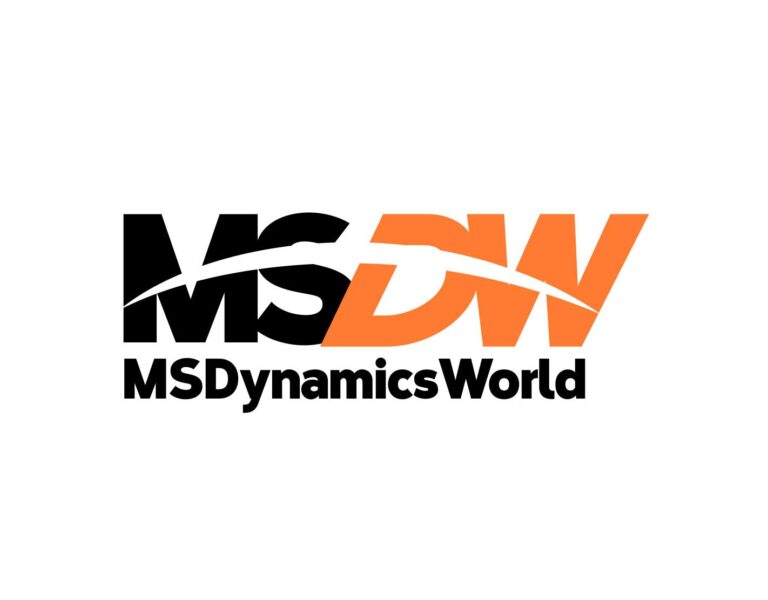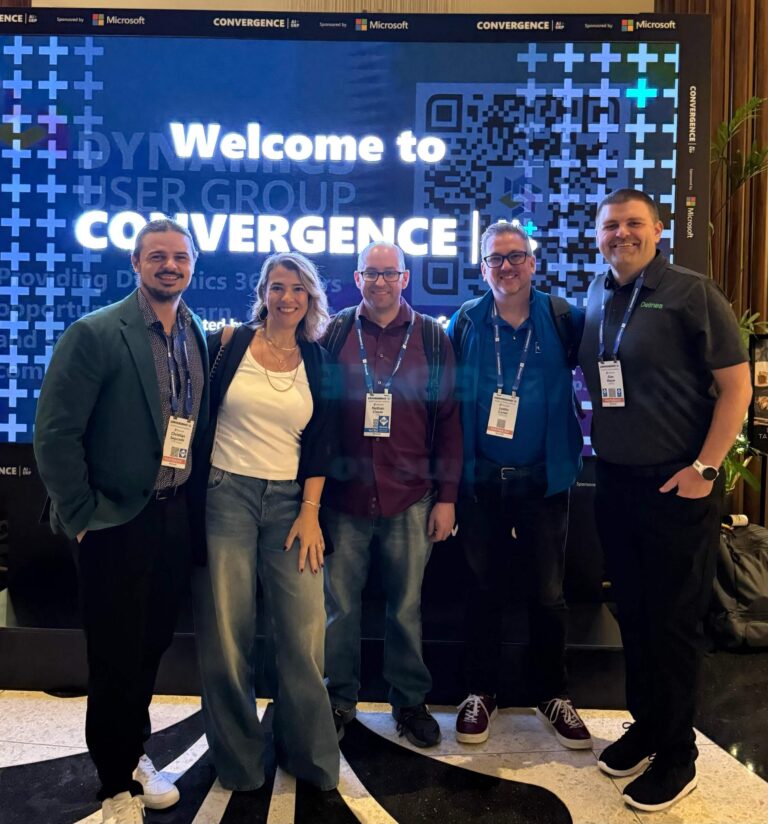Feeling unsure about the challenges ahead for your brand? Economic uncertainties like shifting trade policy, supply chain disruptions, and workforce retention are reshaping consumer behavior, with 85% of shoppers now trading down for lower-priced goods. This shift, along with ongoing operational inefficiencies, is putting significant pressure on companies’ margins.
Today, consumer goods brands need a new approach to stay relevant and profitable while futureproofing their business. Already, brands have been transformed by rapid technology advances and shifting consumer expectations. It is business-critical to collect and analyze real-time data and then immediately apply those insights to your business plan.
Still, many brands are held back by manual processes, disconnected systems, and lack of insights. This is further complicated by thinly-stretched workforces, who are always trying to do more with less.
Enter AI and Agentforce for Consumer Goods, which are quickly changing the way consumer goods companies engage with their customers.
Learn more about:
Understanding agentic AI
CG brands quickly adopted generative AI based on its transformative potential. According to our data, 32% of consumer goods executives have fully integrated generative AI into their operations, while another 34% are in the process of scaling its use across their organizations.
Next up: agentic AI, which understands and responds to inquiries without human intervention. These AI agents use retrieval-augmented generation (RAG), machine learning, and natural language processing to independently handle tasks like product recommendations and troubleshooting. By automating routine tasks, agentic AI frees up your employees to focus on more complex and value-added activities across the entire route to market. This can reduce operational costs, which is increasingly important if you want to build a more resilient operating model that can withstand ever-changing macroeconomic conditions.
Agentic AI frees up your employees to focus on more complex and value-added activities across the entire route to market.
Agentforce for Consumer Goods, for example, lets you build and deploy AI agents using a library of pre-built skills, access to key data, and industry cloud capabilities. With AI specifically developed for consumer goods brands, you can deliver agents to your workforce faster.
Employees spend a staggering 41% of their time on low-value and repetitive tasks, leaving them with less time to focus on strategic initiatives that could increase consumer satisfaction and drive sales. Agentic AI can change all that. This includes both assistive and autonomous use cases for AI agents. They augment human workers by either helping them do their work faster or automating the work they don’t want to do, so humans can focus on the more complex, strategic parts of the job.
Let’s dig deeper into the four ways consumer goods brands can use AI agents like Agentforce right now.
(Back to top.)
Agentforce for Consumer Goods
Agents can dramatically transform how consumer goods companies work today. Learn how to deliver profitable growth with limitless digital labor.


1. Agents for sales
Sales managers and reps need to review a lot of information from a variety of sources to lead productive conversations and make informed decisions. You can build agents to automate account analysis for your sales team, along with a full range of tasks to help them sell more, faster.
Agentforce, for example, uses AI to manage and nurture leads, providing personalized and timely interactions. The agent reaches out to leads, answers their questions, manages objections, and schedules meetings based on CRM and external data. This frees up sales reps to build deeper relationships and focus on strategic account planning. Then, when handing off to a sales rep, Agentforce can provide a summary of recent account activity, revenue performance, and compliance to aid the rep in consultative selling. Expanding its capabilities, Agentforce for Consumer Goods now identifies sales agreement deviations, empowering agents to create targeted action plans.
AI sales agents can reach out to leads, answer their questions, manage objections, and schedule meetings.
You can also build agents to act as sales coaches, which provide real-time guidance and support to sales teams. The sales coach can help with onboarding and training, getting new sales reps up to speed quickly with personalized training and feedback. It helps new hires start contributing faster and more effectively to sales efforts.
Also, the coach offers real-time feedback to all sales reps during sales calls and interactions. This helps reps refine their pitches for more successful sales conversations. Coaches can even provide recommendations based on historical sales data, customer interactions, and market trends, so sales reps can tailor their approaches to specific deals.
Finally, the agents can upskill reps on new item launches or available promotions to encourage upselling and maximize customer adoption. It can coach them on the right value proposition, pricing, and promotions for the new items, so every rep is a pro seller.
(Back to top.)
See insights on AI for consumer goods
We spoke to consumer goods leaders to learn how brands are using AI, from generative to agentic, to benefit their businesses.



2. Agents for key account management
Key account management (KAM) is critical for your business, and building agents specifically for these use cases can streamline negotiations and enhance client relationships. Automating sales outreach speeds up the process and ensures consistency and accuracy in communication.
Agents also monitor and analyze account health, ingesting large volumes of data to make informed recommendations and even take action on your behalf. This improves customer retention and upsell opportunities. They can keep track of inventory levels and provide real-time updates, ensuring your sales reps have the most current information when engaging with customers. This integration helps agents deliver personalized and effective customer experiences, ultimately driving better business outcomes.
What’s more, AI agents can significantly enhance your team’s negotiation strategies by providing real-time data and predictive analytics. These insights help account managers understand market trends, customer behavior, and the competition, so they can make more informed decisions. For instance, Agentforce can analyze past sales data and customer feedback to identify potential pain points and opportunities for improvement.
This data-driven approach helps your team negotiate more favorable terms and conditions, leading to stronger, more profitable relationships with key accounts.
AI agents can significantly enhance your team’s negotiation strategies by providing real-time performance data and predictive analytics.
Finally, you can build an agent to help you manage and optimize trade promotions. The agent helps KAMs analyze past promotions, generate new promotion ideas, and personalize promotions based on customer data. Using data from sales transactions, market trends, and customer interactions, the agent identifies the most effective strategies and predicts the impact of promotions. You can also automate the process of adjusting promotions based on real-time performance so you can fund the most effective strategies and divert funds away from those that are less successful.
(Back to top.)
3. Agents for retail execution
Agentic AI can also help your field service teams. Field reps and area sales managers spend much of their time on manual tasks. But you can build a visit management agent to provide 24/7 visit scheduling assistance. The agent can automate scheduling appointments, provide pre-visit briefings, and generate post-visit summaries. This gives your sales and service teams time back to focus more on building relationships, and reps can get products to the customer faster.
You can build a visit management agent [for field reps] to automate scheduling appointments, provide pre-visit briefings, and generate post-visit summaries.
You can also use AI agents for inventory management, automating the monitoring of inventory levels, so you always have what you need to fulfill orders. By analyzing customer purchasing patterns and preferences, AI can identify potential shortages and trigger automatic reorders before stock levels become critical. Also, agents can adapt to changes in consumer behavior, seasonality, and promotional activities, so your shelf-space strategy remains effective and competitive. By automating these tasks, AI agents free up warehouse and logistics teams for other high-touch, high-value tasks.
CG brands can also build custom AI agents for retail execution. By analyzing sales data, consumer preferences, and store layouts, AI agents can provide data-driven recommendations for visit activities and topics to discuss with the store manager. For example, RNDC, a leading wholesale alcohol beverage distributor, is building agents to maximize revenue and compliance at every store. Reps can ask Agentforce to quickly identify out-of-compliance accounts and recommend products to maximize compliance across markets.
“For newer sales reps, coming up with their game plan for achieving compliance can be challenging,” said Bosman du Plessis, Director of CRM at RNDC. “Now they can simply ask a question in natural language and get clear direction, based on the data foundation we’ve built in Salesforce, for how to achieve compliance with their customers.”
Now [sales reps] can simply ask a question in natural language and get clear direction, based on the data foundation we’ve built in Salesforce, for how to achieve compliance with their customers.
Bosman du Plessis
Head of CRM, RNDC
Finally, AI agents can help you automate store audit processes, so they are faster and more accurate. Agents can monitor store conditions in real time, checking for incorrect pricing, out-of-stock items, and display compliance. This means your brand maintains a high standard of in-store presence, leading to better customer satisfaction and increased sales. Additionally, the data collected from these audits can be used to identify trends and areas for improvement, allowing for continuous optimization of retail execution strategies.
(Back to top.)
See Consumer Goods Cloud in action
Together, humans and agents can integrate planning and execution on the world’s #1 AI CRM for consumer goods.



4. Agents for customer service
Customer service is often the front line of your brand, and building agents to support this function can boost both your customer and employee experience. In fact, our data shows 43% of CG brands identify customer service as the primary use case for generative AI.
Agents can provide 24/7 support, so your customers receive instant, personalized responses at any time. They can handle multiple cases simultaneously and process a high volume of calls, reducing wait times and speeding up resolution. This improves the user experience and helps build a positive brand image. For instance, AI can efficiently resolve common issues like order tracking, returns, and FAQs, freeing up service representatives to focus on more complex and nuanced tasks that require a human touch. Customers like Fisher & Paykel are using this technology to deliver luxury service at scale with Agentforce.
Agents can handle multiple use cases simultaneously and process a high volume of calls, reducing wait times and speeding up resolution.
By integrating your AI agents with your customer relationship management (CRM) systems, agents can access a customer’s service history and context to provide informed and relevant assistance in case management and resolution. They can execute a wide range of tasks, including assisting in the creation, management, and routing of customer cases and automating the initial steps of complaint management. Agents can also help answer customer service reps’ questions and assist them in quickly finding the information they need to assist a customer. And their actions and responses are all grounded in your business data. SharkNinja, for example, speeds up service with Agentforce’s instant answers, providing reps and consumers with instant, effective support across 36 product categories.
This results in a better customer experience, faster issue resolution, proactive communication, and the ability to handle a high volume of cases simultaneously. Additionally, AI-driven analytics can predict customer needs and behaviors, enabling proactive service. When engaging with customers, Agentforce for Consumer Goods accelerates maintenance processes by analyzing assets, automatically generating work orders and outreach emails, empowering representatives to deliver rapid and effective service.
Agentic AI also makes it easier to automate the telesales process. While customer service reps are now expected to drive brand revenue, they often need more information to be effective in selling. Agentforce for Consumer Goods, for example, enables telesales agent skills to help reps sell while they serve. Telesales agents can answer common questions and even guide service reps through the purchasing process. These agents are equipped with natural language processing capabilities, so they understand and respond to customer inquiries in a conversational manner. And when it’s time to hand off to a human representative, agents can provide a quick, comprehensive account summary detailing the order history, visit activity, and account details so the rep can pick up seamlessly where the AI agent left off.
Agentforce for Consumer Goods enables telesales agent skills to help reps sell while they serve.
Agents can also instantly highlight the best products at the best price to maximize revenue in every call. They can analyze customer data to help service reps tailor their approach, offering personalized product recommendations based on past purchases or service history. Agentforce can also call out the best discounts available to help sweeten the deal and encourage upselling. This level of personalization can significantly enhance the customer experience, making it more likely that customers will complete their purchases. Meanwhile, agents handle repetitive and low-value tasks like data entry, order processing, and routine inquiries to free up service reps for more complex issues.
(Back to top.)
Are you ready to build agents for your consumer goods brand?
Imagine your workforce empowered to focus on high-impact, strategic tasks, while AI handles the repetitive and time-consuming duties. Envision trade promotions that consistently deliver ROI and in-store execution that never misses a beat. Get excited about streamlining operations and reducing inefficiencies while elevating customer satisfaction and loyalty. Then celebrate crushing margins and realizing profitable growth. If that’s your plan, you’re ready to deploy agentic AI. Build the agents you need, so you can offer the products and services your customers want.
Discover Agentforce
Agentforce provides always-on support to employees or customers. Learn how Agentforce can help your company today.








